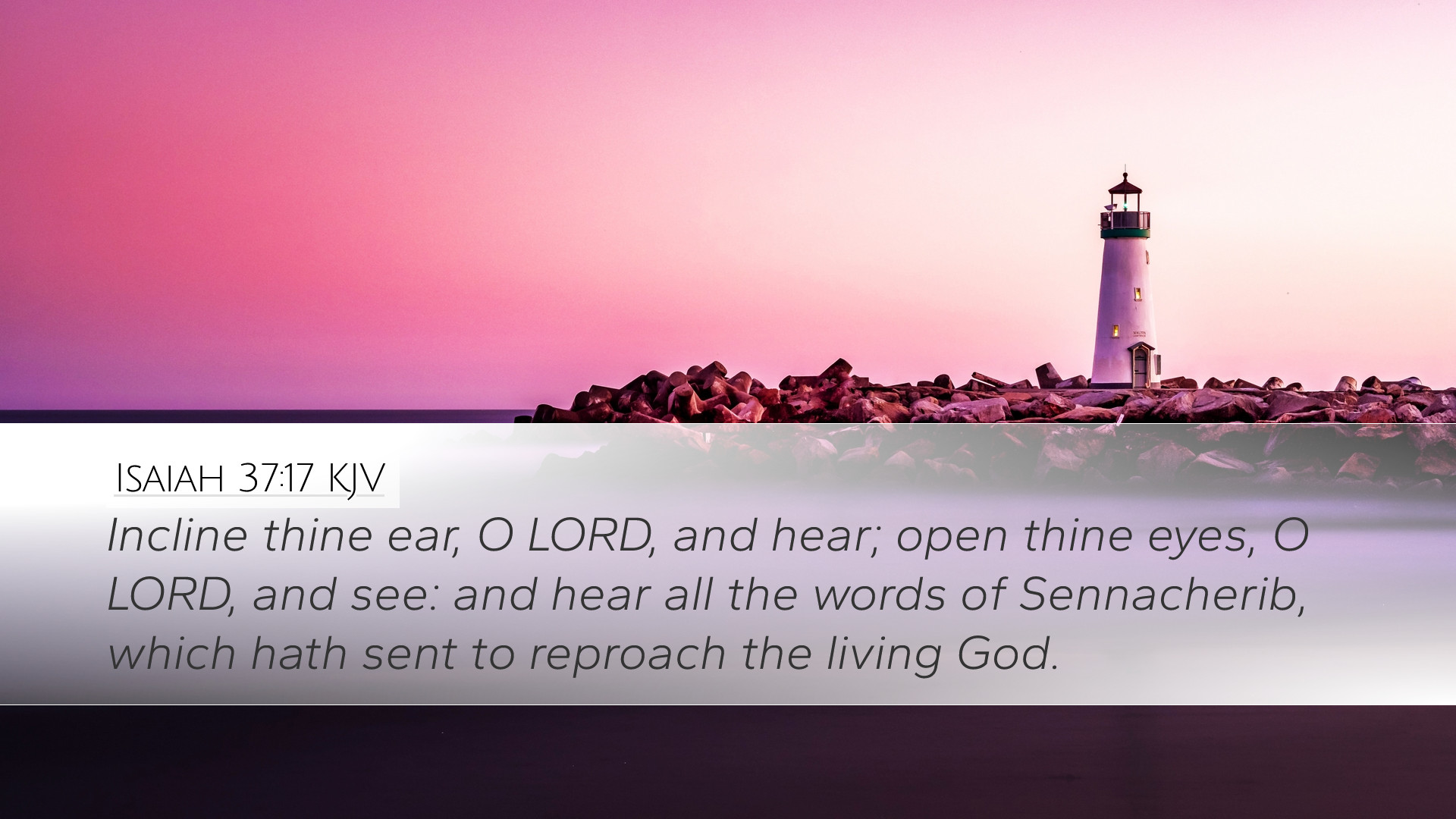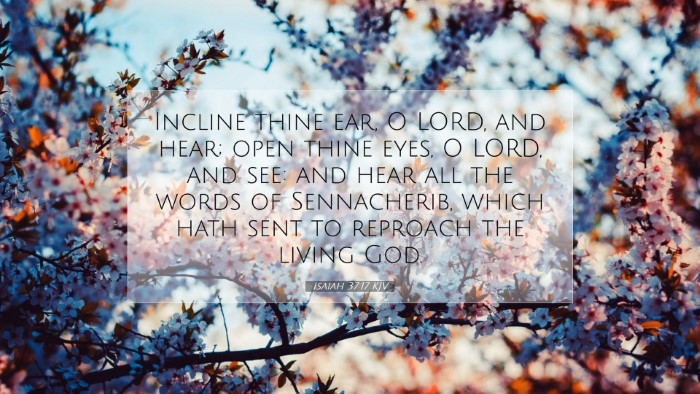Commentary on Isaiah 37:17
Verse: "Incline Your ear, O Lord, and hear; open Your eyes, O Lord, and see; and hear all the words of Sennacherib, which he has sent to reproach the living God."
Introduction
The plea of Isaiah in this verse signifies a deeply personal intercession before God. It contains a vital message for leaders, congregants, and scholars alike, as it illustrates the gravity of trusting in divine providence during times of distress.
Contextual Background
Historically, this passage sits amid a critical moment in the life of King Hezekiah and the kingdom of Judah. The Assyrian king Sennacherib threatened Jerusalem, boasting of his conquests and ridiculing the God of Israel. Hezekiah's actions reflect a reliance on divine support rather than military power.
Matthew Henry's Insights
Matthew Henry emphasizes the desperation inherent in Hezekiah's plea. He notes that "to incline God's ear" is an acknowledgment of His sovereignty, inviting communal lament and supplication. Henry suggests it illustrates the importance of addressing God directly in prayer, especially in dire circumstances.
Albert Barnes' Perspective
Albert Barnes expands on the idea of God's attentiveness to His people's cries. He notes, "This was a public supplication for aid against the proud and blaspheming foe," casting light on the shame that Sennacherib had brought upon the Lord. Barnes emphasizes the need for God to act, illustrating how fear should propel us towards God rather than despair.
Adam Clarke's Commentary
Adam Clarke articulates that the verse represents an urgent acknowledgment of God’s vital role during crises. He elaborates on how the prayer accentuates not only the plea for deliverance but also an alignment with God’s grandeur over threats posed by worldly powers. Clarke suggests that there lies profound theological truth in recognizing God’s supremacy beyond apparent circumstances.
Theological Reflections
The theological implications of Isaiah 37:17 are vast. At its core, this verse addresses the nature of prayer, the acknowledgment of God’s omnipotence, and the importance of faith amidst adversity. This prayer reveals a deep understanding of God's character and His covenant relationship with His people.
Divine Listening
Incline Your ear, O Lord... highlights the belief that God is actively listening to His people. In a time characterized by distress, the notion of divine attention reassures believers that their cries do not go unheard.
Recognition of God’s Kingship
Isaiah's appeal signifies a submission to God’s authority. This conviction is paramount for both personal and collective faith. It articulates an understanding that God reigns supreme over all, including the threats faced by His people.
Application for Modern Believers
For pastors, students, and theologians, the verse serves as a model for prayerful reliance on God. In contemporary settings, challenges persist that mirror those faced by Hezekiah. Leaders in faith are called to guide communities to pray fervently, acknowledging their fears while trusting God’s omnipotent capability to intervene.
Prayer as a Tool for Engagement
- Direct Communication: The appeal to “hear and see” encourages personal engagement with God.
- Faith During Trials: Modern believers should reflect on their prayers in connection with their trust in God.
- Community Prayer: The importance of communal supplication resonates in church movements today.
Encouragement for Leadership
Pastors are reminded not only to lead congregations in prayer but also to embody the humble spirit of Hezekiah — recognizing the sovereignty of God in every facet of life and ministry. This humility should permeate church leadership, emphasizing reliance on divine intervention rather than solely on human strategies.
Closing Thoughts
In conclusion, Isaiah 37:17 reflects a potent call to prayer. It encapsulates deep-seated themes of reliance, humility, and the pursuit of divine aid in the face of adversity. The insights gleaned from public domain commentaries underscore the enduring relevance of this scripture, encouraging believers to bring their burdens before the Lord with confidence and reverence.


